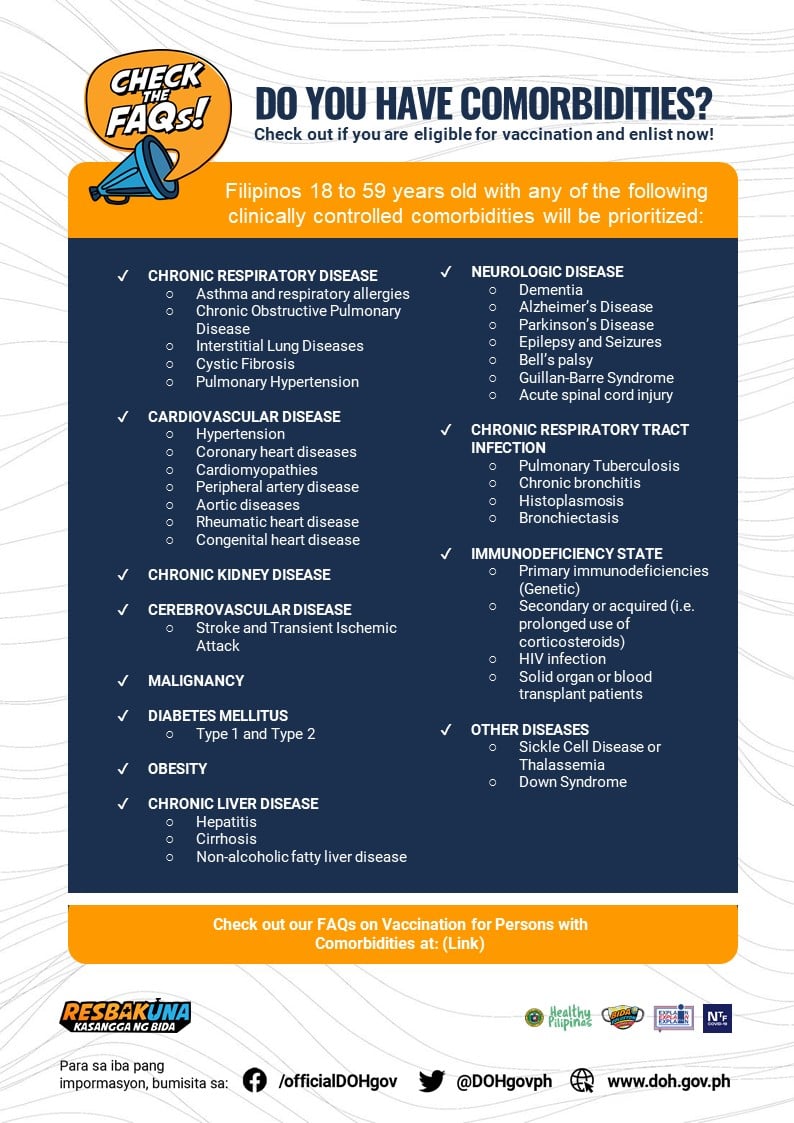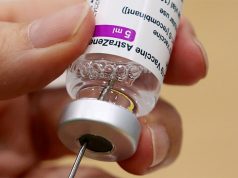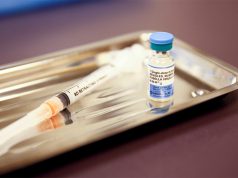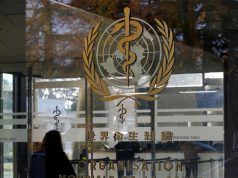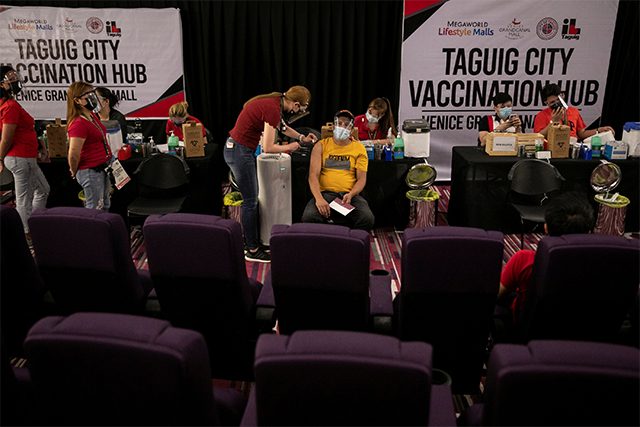
Two doctors reminded the public of the medical certificate and clearance requirements for persons with health conditions who wish to receive a vaccine against COVID-19.
A medical certificate serves as a written proof of a patient’s health condition while a medical clearance is defined as an “official authorization for something to proceed or take place.”
Carlo Trinidad, also known as “Kidney Doctor” on social media, shared an infographic about the health conditions that require a medical clearance. He cited a press release from the Department of Health as his source.
“Not everyone needs a medical clearance from your doctor before being vaccinated against COVID-19. Only those with the conditions listed in the infographic are required to have clearance prior to vaccination,” Trinidad said.
Not everyone needs a medical clearance from your doctor before being vaccinated against COVID-19. Only those with the conditions listed in the infographic are required to have clearance prior to vaccination.
Source: https://t.co/rhqfhSx1zO pic.twitter.com/O84li5otL0
— Carlo Trinidad, MD (@hellokidneyMD) May 22, 2021
In the infographic, the list of health conditions that warrant a clearance are:
- May autoimmune disease
- May HIV
- May cancer
- Umiinom ng steroids at iba pang gamot na immunosuppresants
- Sumasailalim sa organ transplant
- Mga pasyenteng bedridden
This guideline was specifically stated under DOH’s Memorandum No. 2021-0175.
“Medical clearance is not required, except for immunocompromised individuals such as those with autoimmune disease, HIV, cancer patients currently undergoing immunosuppressive therapy, transplant patients, those undergoing steroid treatment, and patients who are bedridden or with a poor prognosis,” the memorandum read.
The same infographic was shared by Gene Nisperos of the University of the Philippines College of Medicine who also explained when one needs a medical certificate and a clearance for COVID-19 vaccination.
In his tweet, Nisperos said that a medical clearance is only required for the conditions specified by the DOH which was listed in the infographic of Kidney Doctor.
“Sana po ay hindi malito na parehong ‘medical certificate’ ang medical clearance at certificate of co-morbidity. MAGKAIBA sila,” he said.
“Ang med clearance ay para sa mga may sakit gaya sa (hand emoji pointing downard), para masabi na ok sila bakunahan. Kung hindi yan ang sakit mo, di mo need ng med clearance,” he added.
Meanwhile, a medical certificate is a document required from a patient with comorbidity as proof that they belong to the A3 priority group.
“Yung certificate of co-morbidity naman ay patunay na A3 kayo, o meron kayong matagal nang karamdaman kaya priority kayo mabakunahan. Sa ibang lugar kasi, hinihingi ito bukod sa reseta ng maintenance meds. Kaya linawin po natin anong ‘medical certificate’ ang hinihingi,” he said.
Local government units are currently administering vaccines to the members of the following priority groups—A1 (health workers), A2 (elderly) and A3 (persons with comorbidities).
In the previous advisory about comorbidities, the DOH said that Filipinos aged 18 to 59 years old will be prioritized should they have existing illnesses the agency listed as “controlled comorbidities.”
The DOH defined persons with controlled comorbidities as “those who have no symptoms of their comorbidity, have stable vital signs (heart rate, respiratory rate, and blood pressure), have had no attacks, admissions, or changes in medication in the past 3 months, and are currently not hospitalized.”
Patients with the following clinically controlled comorbidities will be prioritized:
